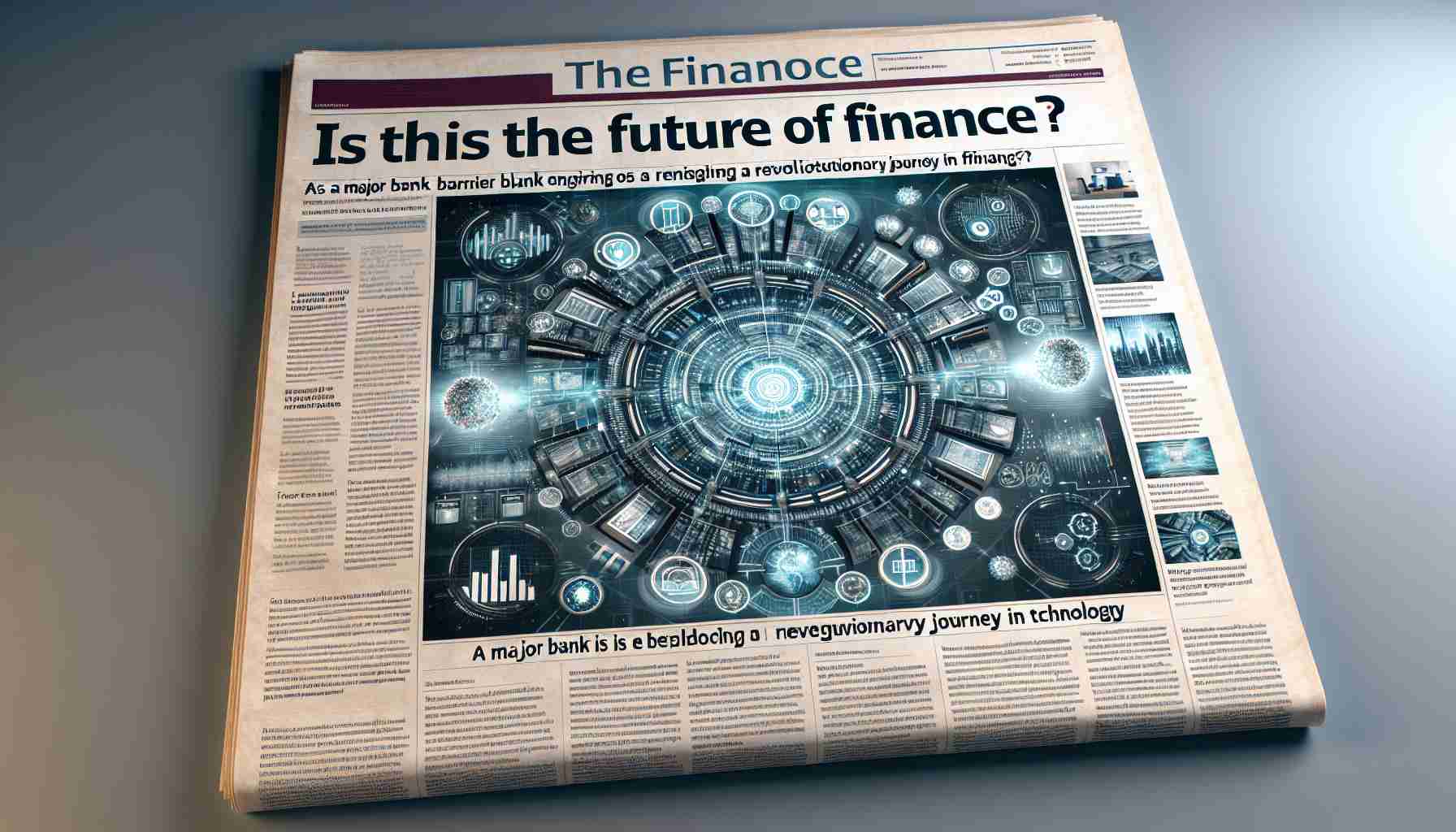BBVA Asset Management Enters Uncharted Territory with Blockchain Integration
BBVA Asset Management (AM) is breaking new ground by initiating an innovative pilot project that could transform the landscape of asset management. This cutting-edge endeavor seeks to incorporate blockchain technology into its operations, a move that signifies the company’s forward-thinking approach.
This bold step is aligned with BBVA AM’s strategic vision to harness the potential of the latest technological advancements, with the ultimate aim of providing superior services to its clients. By venturing into the realm of blockchain, BBVA Asset Management aims to enhance transparency, security, and efficiency in its operations.
The implementation of blockchain technology represents a leap toward modernizing traditional financial processes. Blockchain, known for its decentralized and tamper-proof nature, promises to bring about more streamlined and reliable operations in asset management.
BBVA AM’s pioneering spirit in adopting this revolutionary technology highlights its commitment to staying at the forefront of industry trends and ensuring that clients benefit from the most advanced technological solutions available. This initiative could pave the way for a wider adoption of blockchain in financial services, potentially setting new standards for the industry.
As this pilot project unfolds, it could signal the beginning of a significant transformation in the financial sector, driven by innovative technological integration. With this move, BBVA Asset Management is not only seeking to enhance its service but also to lead the charge in pioneering new industry benchmarks.
How Blockchain is Quietly Revolutionizing Everyday Life: What You Didn’t Know
The promise of blockchain technology extends far beyond the realms of asset management or financial services, impacting a wide array of sectors with transformative potential. As BBVA Asset Management embarks on a pioneering pilot program to integrate blockchain, it opens the door to new applications that can alter how people, communities, and countries interact with digital systems.
What Does Blockchain Offer Beyond Finance?
While blockchain is most commonly associated with cryptocurrency and financial transactions, its decentralized, secure, and tamper-proof nature presents opportunities across various domains:
1. Supply Chain Transparency: In industries like agriculture, electronics, and pharmaceuticals, blockchain can track the provenance of products, ensuring authenticity and ethical sourcing. This leads to increased consumer trust and can help prevent fraud or counterfeit goods.
2. Healthcare Advancements: Patient data can be securely managed and shared with authorized medical personnel using blockchain. This could lead to more personalized and timely healthcare services, reducing administrative inefficiencies and enhancing privacy.
3. Voting Systems: Implementing blockchain in electoral systems can potentially eliminate voting fraud and increase transparency in democratic processes. Countries exploring this include Estonia and Switzerland.
4. Digital Identity Verification: Blockchain can revolutionize how identities are verified online, reducing the need for multiple usernames and passwords and enhancing security against identity theft.
Interesting Facts and Controversies
– Fact: Did you know that blockchain technology is expected to add $1.76 trillion to the global economy by 2030, as estimated by PwC?
– Controversy: One major criticism of blockchain, particularly in finance, is its environmental impact. The energy consumption of blockchain networks, especially those using proof-of-work algorithms, can be significant. For instance, Bitcoin’s energy use has been compared to that of entire countries like Argentina.
Advantages and Disadvantages
Advantages:
– Increased Security: The decentralized nature of blockchain reduces the risk of centralized points of failure, making systems more resilient to cyber-attacks.
– Enhanced Transparency: All participants in a blockchain can access an immutable record of transactions, fostering trust and accountability.
Disadvantages:
– Scalability Issues: Many blockchain networks face challenges in handling large volumes of transactions due to their inherently distributed nature.
– Regulatory and Legal Hurdles: As blockchain crosses international boundaries, it raises questions around jurisdiction and governance, which can hinder widespread adoption.
How Does This Affect Society?
As blockchain technology becomes more pervasive, people may witness changes in everyday activities, from shopping experiences to voting. Communities might develop new levels of trust and accountability with authorities and companies, and countries could streamline bureaucracy and reduce corruption.
Questions and Answers
– Is blockchain technology really secure?
Yes, blockchain’s design makes it inherently secure. Its cryptographic nature and requirement for network consensus create a robust defense against unauthorized changes.
– Will blockchain lead to job losses in traditional industries?
While blockchain could displace some jobs, it is also expected to create new opportunities in technology development, cybersecurity, and digital governance.
Explore more about the multifaceted impact of blockchain on everyday life and find the latest news and trends at the BBC and Forbes.




















